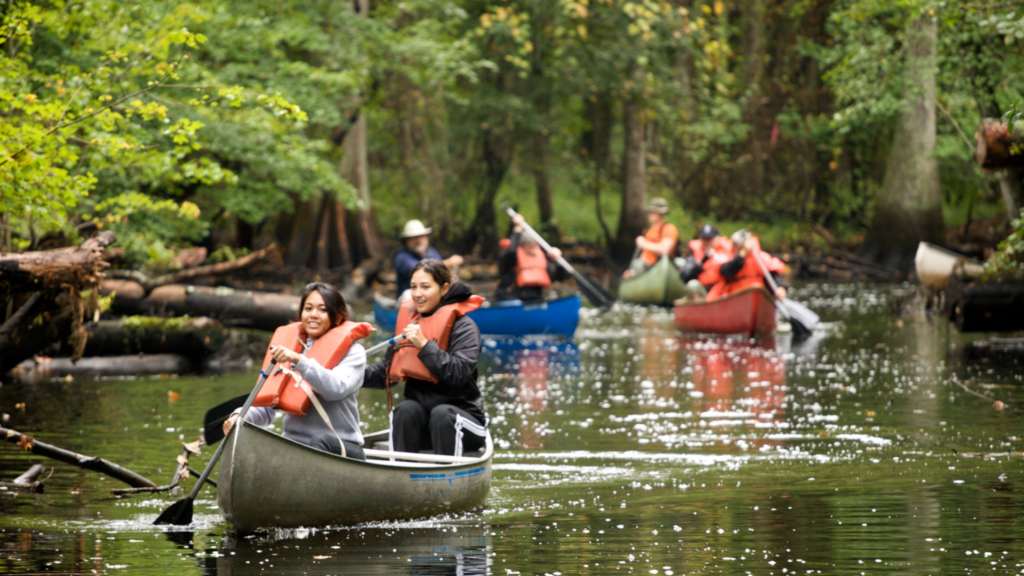In 1999, Sugata Mitra was teaching computer programming in New Delhi. His school was right next to a slum. He wondered if the children from the slum would ever be able to learn to write computer programs. So, out of curiosity, he gave them a computer. And then he left them alone. When Mitra returned eight hours later, they were browsing the Internet. We don’t think that’s so astounding today when infants are given their own iPads to play with. But this was 1999, before being “online” was ubiquitous. The children of the New Delhi slum had never seen a computer and did not know what the Internet was. They taught themselves enough basics in eight hours to successfully browse the Internet.
Teaching ourselves
Mitra wondered if one of his computer programming students had happened upon the children and showed them how to turn on the computer and use the mouse. So he drove 300 miles out of town to a remote village. He left a computer with the children of the village and went home. When he returned two months later, the children were a little miffed with him. They said to him, “You’ve given us a computer that works only in English. So we had to teach ourselves English in order to use it.”
He decided to amp up his experiment. He took a computer to a village in south India where people spoke only Tamil. His hypothesis was that Tamil-speaking children would teach themselves the fundamentals of DNA replication in English. Without a teacher. Just one computer for the whole village. He also set up a control group of students in New Delhi at a rich private school with a trained bio-tech teacher. After four months, both groups of children were at the same level of mastery.
Do the three R’s fit the RCIA?
I tell you this story because in most parishes, our catechetical systems are molded on the pedagogical system of American public schools. Which in turn are modeled on the system of British public schools. The goal of the British educational system, when it was created about 300 years ago, was to maintain the empire. The British needed a system that would train people all over the world how to perform the basic functions required to sustain the empire—reading, writing, and arithmetic.
This uniform, methodical educational process was a terrific fit for Catholics in the early days of the United States. We needed a system that could teach the Catholic faith to immigrants from all over the world—people of different cultures and languages—in a unified, replicable process that would be almost guaranteed to produce Catholics knowledgeable about the faith.
Mitra has shown that the empire-sustaining model of public education is obsolete. He asks, what is the future of learning? His goal is to tap into the innate wonder and curiosity of children and allow them to discover and learn from their own passion.
And I have to ask, shouldn’t we be doing the same thing with catechesis? If nine-year-olds in a south Indian village can get excited enough about DNA replication that they figure it out on their own, how much more powerful will be the passion of a catechumen who has had a life-altering experience of the Risen Christ?
Give RCIA catechumens a parish to learn from
I don’t think there is pure, one-to-one correlation here. I don’t think we can give catechumens a laptop, walk away, and come back four months later expecting to find faithful Christians. But I do think we can be much more creative about giving inquirers “a parish” instead of a computer. We wouldn’t walk away so much as walk with. And instead of seeing ourselves as teachers in front of a class, we might begin to think of ourselves as fellow explorers on the wondrous journey of faith.
Here is a challenge for you. If you are using a school-based system for your catechumenate, pick one of your topics and try teaching it with Mitra’s system. Let’s say a class on the “cardinal virtues” is next up on your schedule. Gather the catechumens and ask, what do you think it means to lead a virtuous life? Then step aside and let them teach themselves. If nine-year-olds who don’t speak English can teach themselves complex bio-tech stuff, how tough can it be for Spirit-filled catechumens to discover the meaning of virtue?
What will you do next?
Are you going to take the challenge? Have you tried anything like this before? Share you thoughts below.


















Trying this concept with “bored out of their heads” junior high kids is a real challenge but I know it can be done as I have observed conversion in some of them. I continue to walk with them.